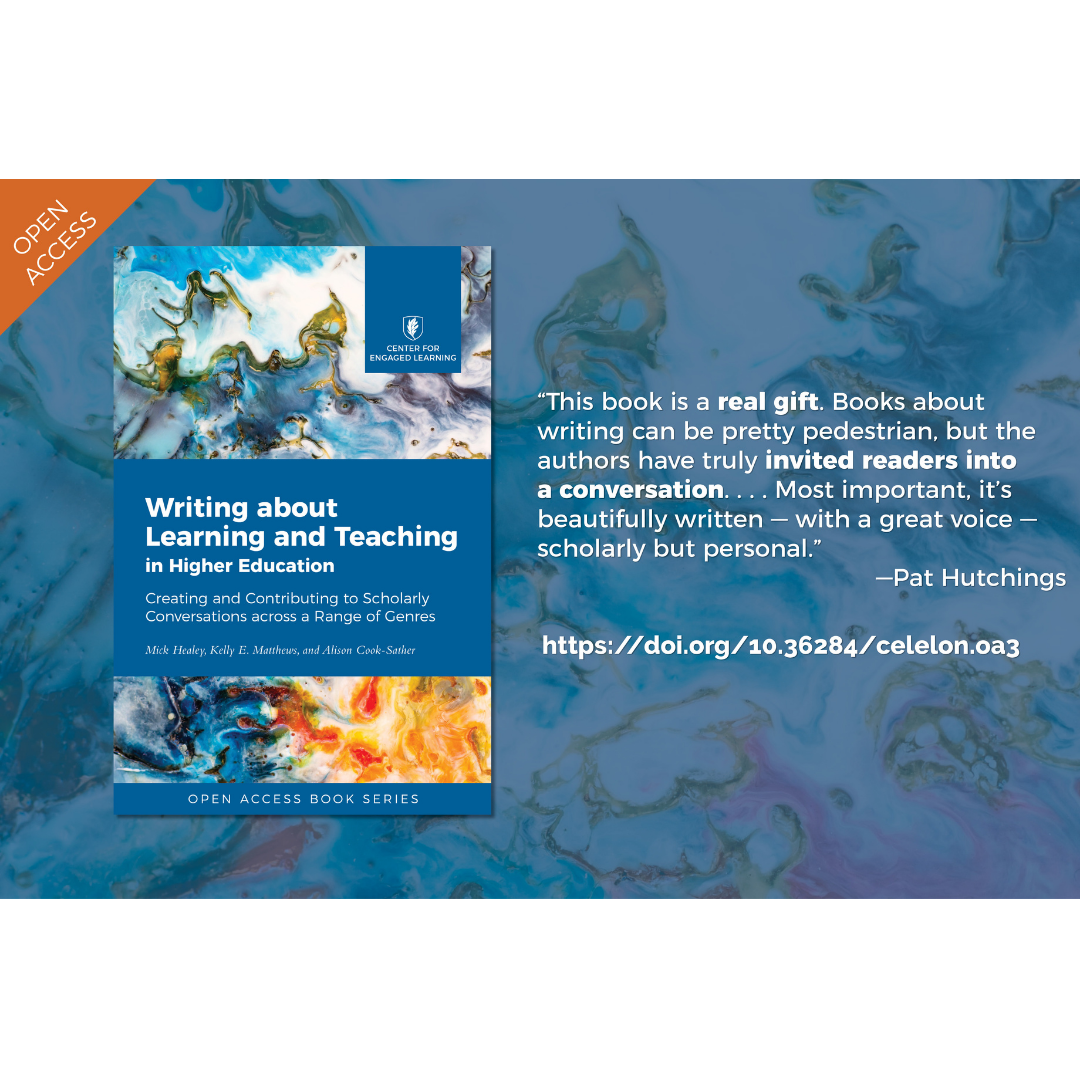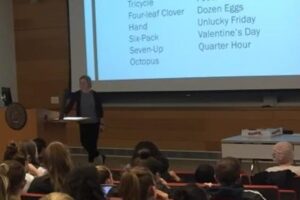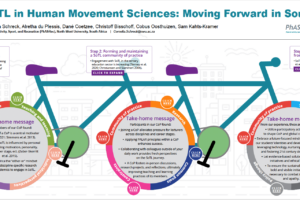
Making sense of writing about learning and teaching
by Mick Healey, Kelly E. Matthews, and Alison Cook-Sather
There are many wonderful guides for writing in general, but there are distinct issues in writing and publishing about learning and teaching that, according to Nancy Chick and colleagues (2014) “remain unaddressed in generic or disciplinary publication materials” (p. 4). That’s why we set out first to write a Teaching & Learning Inquiry article called “Writing Scholarship of Teaching and Learning Articles for Peer-Reviewed Journals” (Healey, Matthews, and Cook-Sather 2019), and then expanded that article into a much larger project: an open access book called Writing about Learning and Teaching in Higher Education: Creating and Contributing to Scholarly Conversations across a Range of Genres (Healey, Matthews, and Cook-Sather, 2020).
In this book and accompanying resources we argue that before we discuss the ‘how’ of writing, we need to explore writing as a subjective and complex human experience through which people bring diverse perspectives to bear on the practice of learning and teaching. For us, making sense of writing about learning and teaching means recognizing that it is not only a way to contribute to existing scholarly conversations but also a way to create new ones. Relatedly, it is a method for fostering the development of identities and clarifying values, and it is a medium for engaging in ongoing learning. What writing about learning and teaching is not, we aim to convey in this book, is some mechanical, one-off performance.
We recognize that there are many communities having different conversations about learning and teaching—disciplinary and inter-disciplinary; formal and informal; context specific and reaching across contexts. This diversity means that we need to learn conventions for writing in particular forms—what we call “genres” in our book—and, as importantly, we need to unlearn disciplinary and cultural norms that privilege some forms of knowing and expression over others and expand our thinking about written communication. Such learning, unlearning, and expanding require intellectual, social, and emotional commitment as well as deep engagement in a series of thoughtful, iterative steps. Some of us come to this work from interdisciplinary backgrounds that supported us in developing such mindsets and practices, but others come from disciplinary backgrounds that did not train us in writing, let alone in writing about learning and teaching.
To guide the demanding, exhilarating, daunting, and deeply rewarding processes of learning, unlearning, and expanding the conventions of genres in which we write, we map out the steps and considerations with the goal of supporting both those new to writing about learning and teaching and those with experience who want to try new genres. We cite a wide range of scholars, offer snippets of our own stories, and weave in reflections by seasoned and new academics, graduate students, and undergraduates who share their experiences of writing about learning and teaching. We thereby try to model more inclusive approaches to such writing—approaches that will expand possibilities for all of us to develop our identities and practices as scholars. We argue for a particular way of making sense of writing about learning and teaching that integrates personal values and practical approaches with the goal of widening, rather than narrowing, what counts as legitimate and important writing and writers about learning and teaching.
Chick, N., Cornell-Swanson, L.V., Lazarides, K., & Meyers. R. (2014). Reconciling apples & oranges: A constructivist SoTL writing program. International Journal for the Scholarship of Teaching and Learning 8 (2): Article 13. https://doi.org/10.20429/ijsotl.2014.080213.
Healey, M., Matthews, K. E., & Cook-Sather, A. (2019) Writing Scholarship of Teaching and Learning Articles for Peer-Reviewed Journals. Teaching & Learning Inquiry, 7(2), 28-50. https://doi.org/10.20343/teachlearninqu.7.2.3
Healey, M., Matthews, K. E., & Cook-Sather, A. (2020). Writing about learning and teaching in higher education: Creating and contributing to public scholarly conversations across a range of genres. Center for Engaged Learning Open-Access Books, Elon University, USA. https://www.centerforengagedlearning.org/books/writing-about-learning/
Mick Healey is a higher education consultant and an emeritus professor at the University of Gloucestershire, UK.
Kelly E. Matthews is an Associate Professor in Higher Education at The University of Queensland, Australia.
Alison Cook-Sather is Mary Katharine Woodworth Professor of Education at Bryn Mawr College and Director of the Teaching and Learning Institute at Bryn Mawr and Haverford Colleges, USA.




